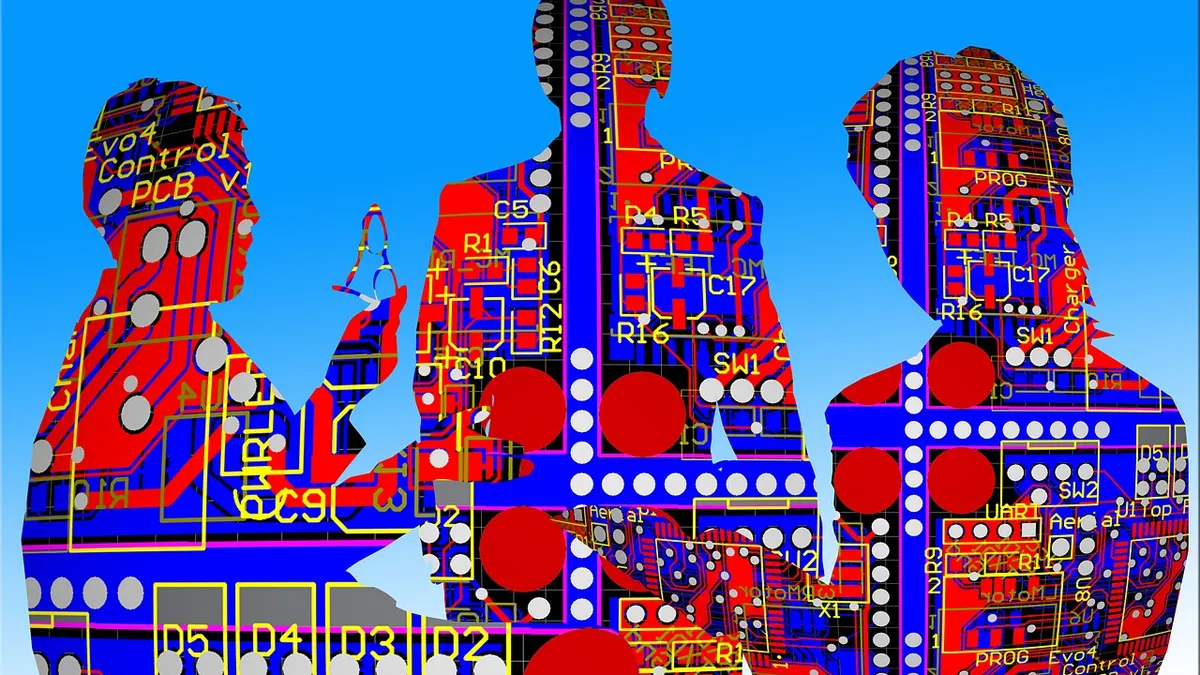Dive Brief:
- More than half (55%) of HR managers said artificial intelligence will be a regular part of their function in five years, a CareerBuilder study shows. The online survey, conducted for CareerBuilder by Harris Poll collected responses from 231 HR managers across industries and company size in the private sector.
- Respondents said they waste an average of 14 hours a week doing tasks that could be automated. More than a quarter of HR managers said they lose 20 hours or more a week on such tasks and 11% said they lose 30 hours or more. Respondents said automation would free them up for strategic functions like connecting with employees, learning their industry and networking externally.
- Rosemary Haefner, CareerBuilder’s chief human resources officer, said that AI and automation can’t replace HR’s human element, which shapes company culture, sees that employees have the training needed and works with business leaders on company goals, but that automation is the key to increasing the efficiency of transactional HR tasks.
Dive Insight:
Automation has relieved HR of some tasks, but not as many as it could, according to the survey results. HR managers traditionally performed too many manual tasks like collecting information on employees and job candidates and maintaining records and reports. Automation has simplified some of those tasks, but could take over more or provide efficiency in time-dense duties like recruiting and training.
HR must be an equal player in the C-suite if organizations want to stay competitive. Leaders' biggest concerns fall under HR’s purview: attracting and hiring the best talent, contending with the skills gap dilemma, administering competitive benefits programs and finding cybersecurity specialists to protect their information systems from data breaches. Robots aren't about to take over those human elements anytime soon, but there could be serious efficiency gains in strategic expansion of the role of AI.
HR has long known the value of being a strategic business partner to their organizations. But with transactional responsibilities taking up a significant amount of time, those strategic tasks are getting short shrift. Technological advances could free up HR to take on an even greater strategic role.














